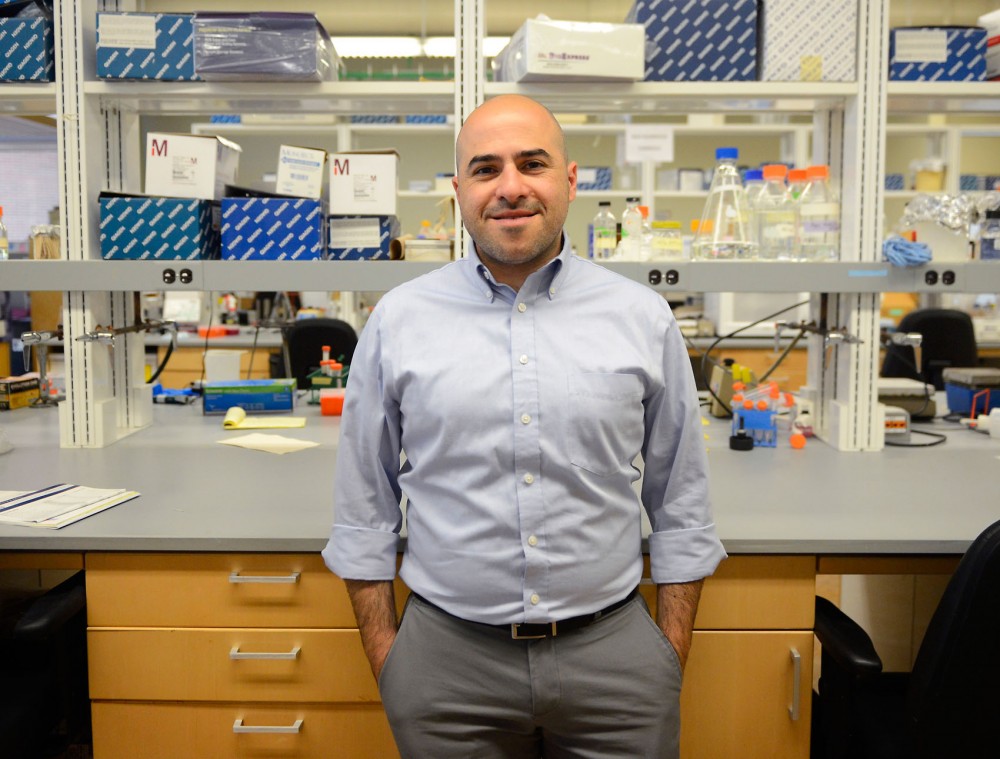Decked in long tubes and cable wires, the Blekhman lab on the University of MinnesotaâÄôs St. Paul campus is designed to collect data at lightning-fast speeds about human gut microbiomes âÄî the collection of microbes living in the human body that may be linked to cancer. Ran Blekhman, the labâÄôs principal investigator and a population geneticist at the school, researches how genetic variations in humans contribute to differences in the microbiome and how the interaction between bacteria in the microbiome is causing diseases. His work was featured in a study published last month that suggested a link between the gut microbiome and colon cancer. Researchers, including Blekhman, discovered a link between colorectal cancer and specific traits of bacteria. By comparing colorectal tumors in 44 cancer patients with bacteria present in others parts of patientsâÄô intestines, they found more diversity in bacteria near cancer sites than anywhere else in the colon âÄî suggesting that bacteria contribute to tumor growth. âÄúTo me, it would be surprising if there wasnâÄôt a link between the two because on average, there is about 10 bacteria in your body for every human cell, so we are actually more bacteria than human,âÄù said Michael Burns, lead author of the study and postdoctoral fellow in BlekhmanâÄôs lab, which opened in 2013. Burns joined the lab to analyze genome datasets and apply them to cancer research. He said working in the lab has given him the opportunity to explore how these results could potentially detect and prevent colon cancer. Blood in stool samples and colonoscopies are two common ways to detect whether a patient has a tumor, Blekhman said, though colonoscopies are costly and invasive. âÄúUsing the microbiome could be an approach that is actually a lot less invasive and problematic for the patient because the patient can just bring in a stool sample,âÄù he said, âÄúand using the bacteria found in the stool sample, we can detect whether the individual has a tumor and figure out what kind of tumor it is and the stage that is in.âÄù Dan Knights, co-author of the study and assistant professor in the department of computer science and engineering, runs a computational microbiology lab where he develops computational tools and applies them in areas like infectious disease and the effects of an American diet on the human microbiome. Knights is studying immigrant populations in the Minneapolis area, who tend to be at a higher risk for diabetes and obesity after arriving to the U.S. âÄúOur theory is that the loss of their native gut microbiota, or possibly in combination with acquiring American bugs, is contributing to their risk of diseases,âÄù Knights said. Both Knights and Blekhman, said their labs strive to use predictive modeling and diagnostic tools to detect diseases that arise from bacteria in the human digestive system. Blekhman said he and his lab are planning to do more tests to confirm the results of the most recent study.
Bacteria could improve cancer detection
University lab is researching cancer utilizing intestinal microbial biomes.

Image by Juliet Farmer
Ran Blekhman poses in the Blekhman Lab on Friday. Blekhman, who studies genetic variations and the microbiome with fellow researchers in the lab, co-authored a study last month linking the gut microbiome and colon cancer.
by Sarah Thamer
Published July 15, 2015
0

